#calvin cambridge
Text
8 notes
·
View notes
Text
Today in Christian History
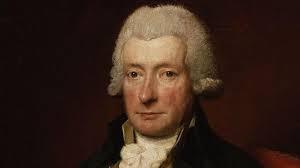
Today is Thursday, April 25th, 2024. It is the 116th day of the year in the Gregorian calendar; Because it is a leap year, 250 days remain until the end of the year.
62: Death of Mark the Gospel writer while imprisoned in Alexandria in the eighth year of Nero, according to Vetus martyrologium romanum (an old Roman collation of martyr accounts).
799: Pope Leo III is attacked, his eyes stabbed, and his tongue torn. He recovers and later crowns Charlemagne as emperor.
1449: The ineffectual Council of Basel ends.
1479: Death of Sylvester of Obnorsk, a Russian Orthodox hermit who had lived off roots and bark. Eventually he had established a monastery.
1564: John Calvin, reformer of Geneva, dictates his last will and testament to notary Peter Chenalat.
1595: Death from a fever in the convent of St. Onofrio of Italian poet Torquato Tasso. Ironically, he was supposed to receive a laurel from the pope on this day in recognition of his epic poems, among which Jerusalem Delivered had been the most acclaimed.
1735: Death at Epworth, England, of Samuel Wesley, curate, author, and father of Methodist revival leaders John and Charles Wesley.
1800: Death at East Dereham, Norfolk, England, of English poet William Cowper (pictured above). Despite lifelong depression, he had produced enduring hymns, including, “Oh For a Closer Walk with God” and “There is a Fountain Filled with Blood.” Dementia had led him to believe he was damned.
1879: Consecration of J. B. Lightfoot as Bishop of Durham. A renowned English New Testament scholar, he had left Cambridge and a life of scholarship to devote the remaining ten years of his life to church administration.
1889: Death at Mt. Pleasant, Michigan, of Anzentia Igene Perry Chapman. A member of the Free Methodist Church, she wrote a number of hymns, including, “Thou Shalt Rest at Eve,” and “We’ll Never Say Goodbye.”
1917: Ordination of Paul Sasaki as a priest in the Anglican Church in Japan. He will become bishop of Nippon Sei Ko Kei (an independent church organization within the Anglican Communion), and suffer imprisonment for his refusal to bring Nippon Sei Ko Kei under the authority of a government-ordered church coalition.
14 notes
·
View notes
Text
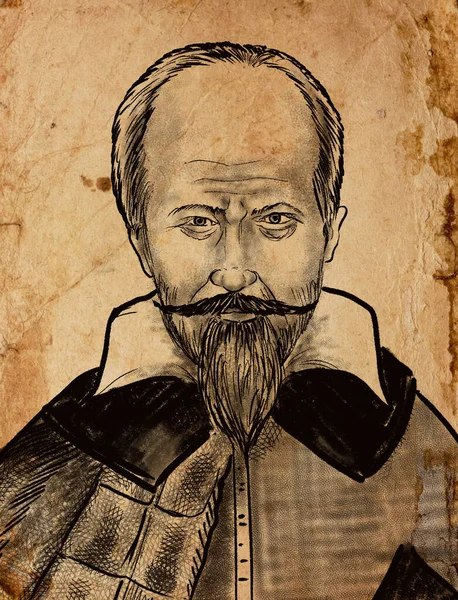
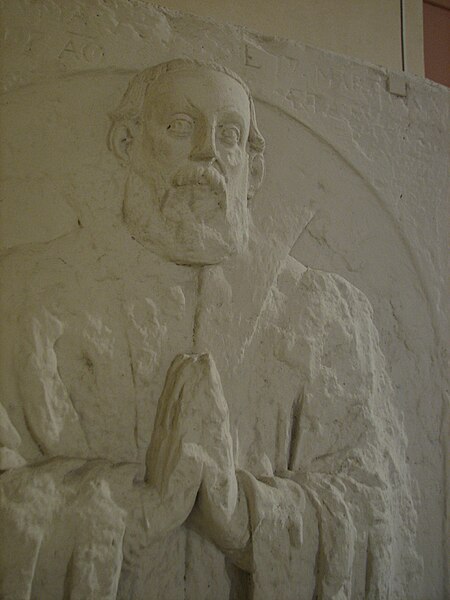
On 17th March 1565, Alexander Ales (also known as Alesius and Aless), theologian and reformer, died.
Alesius played an important role linking the Reformations of Scotland, with Germany, and England. He is believed to have been planning to translate Luther’s German Bible into Scots, but it’s more likely that he intended to use the original Greek and Hebrew manuscripts which Luther himself had used. These were dangerous times in Scotland, the reformation was just kicking off Patrick Hamilton, a friend of Ales was burnt at the stake for heresy, he himself was tried in his absence and also found guilty of heresy, by this time he had fled it is said to have been the first Scot to meet Jean Calvin, Calvin and Ales were both refugees in Germany at the time.
He also spent time in England he was occasionally referred to as Alexander Alesius, Scotus, Doctor Theologiae, Henry VIII had broke with the church of Rome, I found a short snippet on a page about Anne Boleyn, Alexander was visiting the English court at Greenwich Palace, there he witnessed Henry VIII and Anne Boleyn had an argument. He couldn’t hear what it was about but it was clear to him that the King was angry.
Six weeks later the Queen lost her head!
After a time teaching at Cambridge he ended up back in Germany where in Leipzig he passed the remainder of his days in peace and honour, and was twice elected Rector of the University there.
You can find more on the man here https://www.tudorsociety.com/alexander-ales-alesius/
13 notes
·
View notes
Note
Can you expand on Faust's final fate not being earned being central to all versions of the story? Because in the Goethe at least I couldn't agree more. Faust's salvation has nothing to do with Faust and that's the point.
OKAY SO. I do want to preface what's likely to be a horrible incoherent ramble that contradicts itself like five different times per paragraph by mentioning, first, that I haven't fully worked out an actual argument or Grand Unified Theory of Faustology, I'm just kind of turning it over in my head, and, that I recognize that the Christian framework of the original versions of the story isn't always intended literally in adaptations and doesn't always reflect orthodox Christian notions of salvation and damnation. I'm still grappling with what those concepts mean to Goethe, particularly, what the ultimate end of the "ever upward" approach might be. There are definitely multiple people likely to be reading this with far more in-depth knowledge of Goethe than I have (and MUCH better German). I do think, though, that that sense of undeservedness cuts across versions of the story--certainly the serious approaches starting with Marlowe--and I also think it's important because it makes us consider why it doesn't feel quite right. What moral standards are we using to consider either Faust himself or the version of the universe in which he operates?
(eta: put in a readmore)
Marlowe's version, for instance, is very much still informed by the Reformation-era context that originally produced the story, and is rooted in his own experience being a Cambridge student at a time when Calvinism was the hot topic of the day. He presents a sharp disconnect between the theological and moral arcs of the play: as an article I recently read puts it, the primary focus is on Faustus' sins against God, not against other people (most of his actions against other people are either dumb pranks, actions arguably taken in self-defense, or actions against targets that the original audience would see as deserving, like the pope). Faustus isn't a particularly good person, of course, but neither is he particularly evil, and the idea that one's reprobate status (or impenitence, it's ambiguous) would be reflected in one's actions is weirdly absent. He's at his least sympathetic before he sells his soul. The theological arguments for his damnation are pretty cohesive but I think it also doesn't feel right on a human level: does this mean we're meant to question our own sympathies, or Calvinist/general Protestant theology? And then with Goethe's version you have the opposite issue, where Faust's motivations as described are more sympathetic than those of Marlowe's Faustus--he wants happiness, satisfaction, youth--and at the same time he causes so much collateral damage with his massive self-absorption. He doesn't generally seem to act out of malicious intent and generally doesn't actively want to wreck people's lives specifically, but at the same time he doesn't pay heed to things like the obvious and foreseeable consequences of seducing a girl who lives in a strict patriarchal society or asking a demon to convince people to move out of their house for urban planning purposes and only really acknowledges them when it's too late. What does it mean, in this case, for him to be saved, for whatever value of "saved" exists in Goethe's universe? Or, since Goethe seems to operate on a strongly allegorical level especially in Faust II (I haven't even gotten into the whole cosmic-wager side of the story) what are the big ideas at work here? We have to tease those out instead of just passing judgment on the character, and we have to hash out how Faust-the-character is quintessentially human and what that means.
So, like. The tl;dr version is that I think that because the Faust narrative is a collection of stories about our standards, what we value and what we condemn, and our human limitations and where we stand in relation to (whatever concept of) the eternal, his ultimate fate is always unsettling because the idea of sort of weighing up everything about a person and finally defining them might be relatively easy from a distance but the more you think about it the harder it gets, and it's important that we sit with that. If that makes sense.
#faust#doctor faustus#hot faust summer#are we more than the worst thing we've ever done?#every time i talk about goethe in much detail i come out looking stupid so idk maybe the streak is still on
37 notes
·
View notes
Text
A palate cleanser by u/Mickleborough
A palate cleanser
Diplomatic dressing made simple.This is from the (then) Cambridges’ 4-day tour of Sweden and Norway in 2018. In Norway William and Kate watched ski jumping at the Holmenkollen Ski Jump in Oslo, where they also participated at an event organised by the Norwegian Ski Federation.Such wholesomeness. (And the fur trim on Kate’s gloves is faux - the gloves are thought to be from British middle-class department store John Lewis.)Kate looks Kjus right in an orange (which could pass for red) and white jacket from Norwegian brand Kjus (co-founded by a Swede, so she‘s paid homage to both host countries with 1 jacket. William’s in blue. Both together make up the colours of the Norwegian flag.Kate was 7 months pregnant in that photo.Then we have Harry and Meghan at Whistler in Canada.This screams Bakersfield outlet shopping.Meghan, a fan of Canada (‘they’re [her website (cough) designer] Canadian, so I’m a fan’) pays homage to Canada by, er... Well, she’s got it 1/3 right, with the white skinny jeans. [Not a good look on you, Meghan love. Seriously.] No red, as per maple leaf on flag. Jacket by Calvin Klein - American. Ditto CO jumper, Frame Jeans, and Sorel boots (Sorel originally was founded in Ontario, but is now owned by an American company). Burberry (as in her beanie) is British (you know, racists).As for Harry - guess it’s rough sleeper chic.Saw a headline along the lines of ‘Meghan wears 10-year-old boots - just like Kate!’, which might explain the boots. Kate too has worn Sorel (of course, she doesn’t have a monopoly on it, the way Meghan’s fans think Meghan has a monopoly on Aquazurra shoes).What I can’t figure out is: Why isn’t Meghan wearing gloves? Let’s say the temperature was 33 F / 1 C (erring on the side of warm). Isn’t that glove weather? People around them seem to think so. But then gloves would cover her finger ornaments, including the newly discovered engagement ring (something about a loose stone which apparently took 9 months to re-set). Bet she made Harry go without gloves (notice he has his free hand in his pocket, maybe to comfort todger) so that she wouldn’t look an idiot holding his gloved hand in her bare one.Meghan also wore Diana’s gold watch. Wouldn’t wearing metal next to your skin in cold weather be, well, cold?
post link: https://ift.tt/wR6CAPu
author: Mickleborough
submitted: February 15, 2024 at 11:47PM via SaintMeghanMarkle on Reddit
#SaintMeghanMarkle#harry and meghan#meghan markle#prince harry#fucking grifters#Worldwide Privacy Tour#Instagram loving bitch wife#Backgrid#voetsek meghan#walmart wallis#markled#archewell#archewell foundation#megxit#duke and duchess of sussex#duke of sussex#duchess of sussex#doria ragland#rent a royal#clevr#clevr blends#lemonada media#archetypes#archetypes with meghan#invictus#invictus games#Sussex#Mickleborough
5 notes
·
View notes
Text

Gloria Richardson Born: May 6, 1922 -July 15, 2021, a Black civil rights pioneer who led the Cambridge Movement,
The activist died in her sleep at her New York City home on Thursday, her granddaughter Tya Young told the Associated Press.
A cause of death was not given, though Young noted to the outlet that Richardson had not been ill.
A graduate of Howard University, Richardson is known for her unrelenting determination in the fight for racial equality, having once been captured in a photograph pushing away the rifle of a National Guardsman during the civil rights movement in Cambridge, Maryland, in the '60s.
In 1962, after joining the Cambridge Nonviolent Action Committee, she organized sit-ins to desegregate schools and public facilities and push for fair jobs, public housing, and equal education.
By 1963, the peaceful sit-ins turned violent and resulted in Cambridge Governor J. Millard Tawes declaring martial law. At the time, Cambridge Mayor Calvin Mowbray asked Richardson to end demonstrations in exchange for a promise not to arrest Black protestors, but she declined to compromise.~via ABC/news artwork/photo/meme authorship unknown
13 notes
·
View notes
Text
blackloveeeee reblogged
Aug 26
calvin-cambridge
Jul 28, 2016



Source: calvin-cambridge
2 notes
·
View notes
Note
LIL BOW WOW LOOKING BRAIDSSSSSSS LMFAOOOOOOOO
Nobody wanna see him or his Calvin Cambridge braids 😂😂😂😂
2 notes
·
View notes
Text
[ runs to the locker room like calvin cambridge ]
12 notes
·
View notes
Text
Isaac Watts (1674-1748) Appreciation Post
I read up on the brilliant hymnwriter whose songs we still sing today, even though we usually don’t know who wrote them!
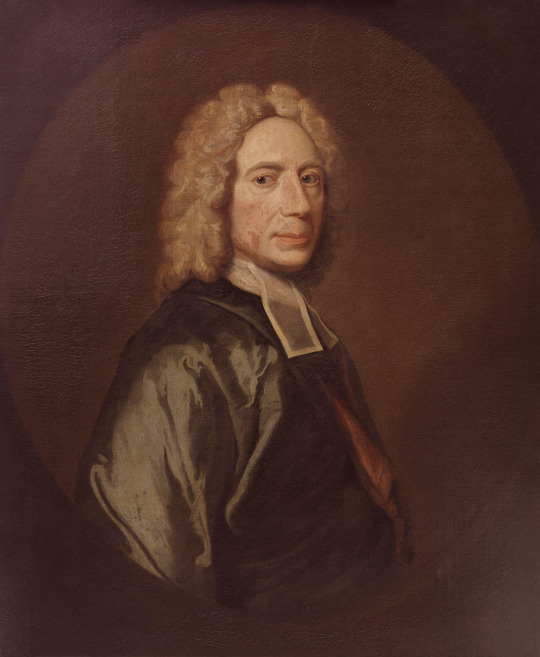
The Wikipedia description of his background:
Watts was born in Southampton, Hampshire, England, in 1674 and was brought up in the home of a committed religious nonconformist; his father, also Isaac Watts, had been incarcerated twice for his views. Watts had a classical education at King Edward VI School, Southampton, learning Latin, Greek, and Hebrew.
Watts displayed a propensity for rhyme from an early age. He was once asked why he had his eyes open during prayers, to which he responded:
A little mouse for want of stairs
ran up a rope to say its prayers.
He received corporal punishment for this, to which he cried:
O father, father, pity take
And I will no more verses make.
Watts could not attend Oxford or Cambridge because he was a nonconformist and these universities were restricted to Anglicans—as were government positions at the time. He went to the Dissenting Academy at Stoke Newington in 1690. Much of the remainder of his life centred on that village, which is now part of Inner London.
Following his education, Watts was called as pastor of a large independent chapel in London, Mark Lane Congregational Chapel, where he helped train preachers, despite his poor health. He held religious opinions that were more nondenominational or ecumenical than was common for a nonconformist Congregationalist. He had a greater interest in promoting education and scholarship than preaching for any particular sect.
Watts took work as a private tutor and lived with the nonconformist Hartopp family at Fleetwood House on Church Street in Stoke Newington. Through them, he became acquainted with their immediate neighbours Sir Thomas Abney and Lady Mary. He eventually lived for a total of 36 years in the Abney household, most of the time at Abney House, their second residence. (Lady Mary had inherited the manor of Stoke Newington in 1701 from her late brother Thomas Gunston.)
On the death of Sir Thomas Abney in 1722, his widow Lady Mary and her unmarried daughter Elizabeth moved all her household to Abney House from Hertfordshire, and she invited Watts to continue with them. He particularly enjoyed the grounds at Abney Park, which Lady Mary planted with two elm walks leading down to an island heronry in the Hackney Brook, and he often sought inspiration there for the many books and hymns that he wrote.
Watts lived at Abney Hall in Stoke Newington until his death in 1748; he was buried in Bunhill Fields. He left an extensive legacy of hymns, treatises, educational works, and essays. His work was influential amongst nonconformist independents and religious revivalists of the 18th century, such as Philip Doddridge, who dedicated his best-known work to Watts.
The title page of Isaac Watts' "Guide to Prayer", fourth edition, 1725
Sacred music scholars Stephen Marini, Denny Prutow and Michael LeFebvre describe the ways in which Watts contributed to English hymnody and the previous tradition of the Church. Watts led the change in practice by including new poetry for "original songs of Christian experience" to be used in worship, according to Marini.The older tradition was based on the poetry of the Bible: the Psalms. According to LeFebvre, Psalms had been sung by God's people from the time of King David, who with a large staff over many years assembled the complete book of Psalms in a form appropriate for singing (by the Levites, during Temple sacrifices at the time). The practice of singing Psalms in worship was continued by Biblical command in the New Testament Church from its beginnings in Acts through the time of Watts, as documented by Prutow. The teachings of 16th-century Reformation leaders such as John Calvin, who translated the Psalms in the vernacular for congregational singing, followed this historic worship practice. Watts was not the first Protestant to promote the singing of hymns; however, his prolific hymn writing helped usher in a new era of English worship as many other poets followed in his path.
Watts also introduced a new way of rendering the Psalms in verse for church services, proposing that they be adapted for hymns with a specifically Christian perspective. As Watts put it in the title of his 1719 metrical Psalter, the Psalms should be "imitated in the language of the New Testament." Besides writing hymns, Isaac Watts was also a theologian and logician, writing books and essays on these subjects.
From the Christianity Today article:
Young Isaac showed genius early. He was learning Latin by age 4, Greek at 9, French (which he took up to converse with his refugee neighbors) at 11, and Hebrew at 13. Several wealthy townspeople offered to pay for his university education at Oxford or Cambridge, which would have led him into Anglican ministry. Isaac refused and at 16 went to London to study at a leading Nonconformist academy. Upon graduation, he spent five years as a private tutor.
In 1702 he became pastor of London's Mark Lane Independent (i.e. Congregational) Chapel, then one of the city's most influential independent churches. But the following year, he began suffering from psychiatric illness that would plague him for the rest of his life. He had to pass off more and more of his work to his assistant and eventually resigned in 1712.
Though German Lutherans had been singing hymns for 100 years, John Calvin had urged his followers to sing only metrical psalms; English Protestants had followed Calvin's lead.
Watts's 1707 publication of Hymns and Spiritual Songs technically wasn't a collection of hymns or metrical psalms, but it was a collection of consequence. In fact, it contained what would become some of the most popular English hymns of all time, such as "When I Survey the Wondrous Cross."
Watts didn't reject metrical psalms; he simply wanted to see them more impassioned. "They ought to be translated in such a manner as we have reason to believe David would have composed them if he had lived in our day," he wrote. Psalms of David Imitated in the Language of the New Testament followed in 1719.
Many of his English colleagues couldn't recognize these translations. How could "Joy to the World" really be Psalm 98? Or "Jesus Shall Reign Where'er the Sun" be Psalm 72>, or "O God Our Help in Ages Past" be Psalm 90?
Watts was unapologetic, arguing that he deliberately omitted several psalms and large parts of others, keeping portions "as might easily and naturally be accommodated to the various occasions of Christian life, or at least might afford us some beautiful allusions to Christian affairs." Furthermore, where the psalmist fought with personal enemies, Watts turned the biblical invective against spiritual adversaries: sin, Satan, and temptation. Finally, he said, "Where the flights of his faith and love are sublime, I have often sunk the expressions within the reach of an ordinary Christian."
Such looseness brought criticism. "Christian congregations have shut out divinely inspired psalms and taken in Watts's flights of fancy," protested one detractor. Others dubbed the new songs "Watts's whims."
But after church splits, pastor firings, and other arguments, Watts's paraphrases won out. "He was the first who taught the Dissenters to write and speak like other men, by showing them that elegance might consist with piety," wrote the famed lexicographer (and Watts's contemporary) Samuel Johnson.
More than a poet, however, Watts was also a scholar of wide reputation, especially in his later years. He wrote nearly 30 theological treatises; essays on psychology, astronomy, and philosophy; three volumes of sermons; the first children's hymnal; and a textbook on logic that served as a standard work on the subject for generations.
But his poetry remains his lasting legacy and earned him acclaim on both sides of the Atlantic. Benjamin Franklin published his hymnal, Cotton Mather maintained a long correspondence, and John Wesley acknowledged him as a genius.
Songs he’s known for:
Joy to the World
O God Our Help in Ages Past
I Sing the Mighty Power of God
When I Can Read My Title Clear
O God Beyond All Praising
And a lot more can be found here.
5 notes
·
View notes
Text
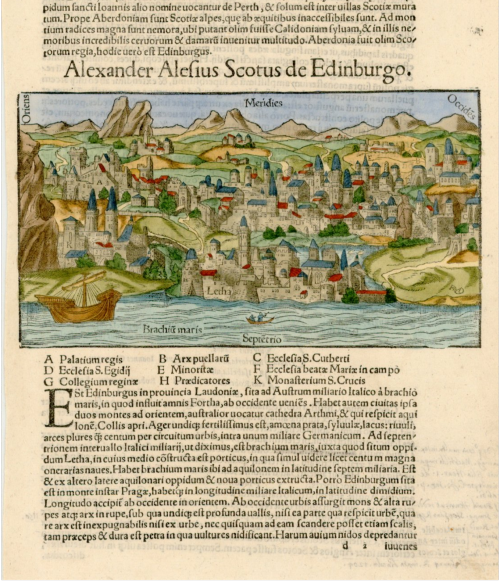
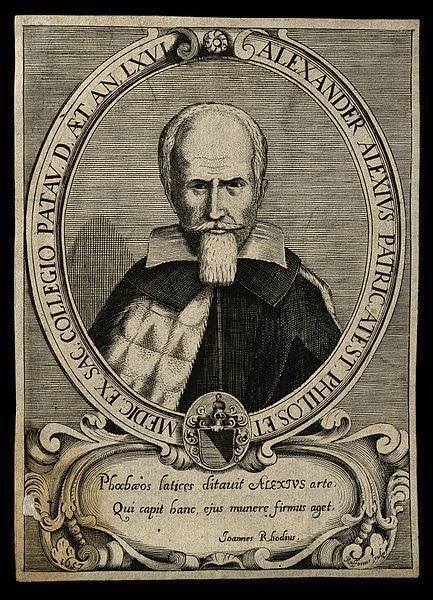
On 17th March 1565, Alexander Ales (also known as Alesius and Aless), theologian and reformer, died.
Alesius played an important role linking the Reformations of Scotland, with Germany, and England. He is believed to have been planning to translate Luther’s German Bible into Scots, but it’s more likely that he intended to use the original Greek and Hebrew manuscripts which Luther himself had used.
These were dangerous times in Scotland, the reformation was just kicking off Patrick Hamilton, a friend of Ales was burnt at the stake for heresy, he himself was tried in his absence and also found guilty of heresy, by this time he had fled
it is said to have been the first Scot to meet Jean Calvin, Calvin and Ales were both refugees in Germany at the time.
He also spent time in England he was occasionally referred to as Alexander Alesius, Scotus, Doctor Theologiae, Henry VIII had broke with the church of Rome, I found a short snippet on a page about Anne Boleyn, Alexander was visiting the English court at Greenwich Palace, there he witnessed Henry VIII and Anne Boleyn had an argument. He couldn’t hear what it was about but it was clear to him that the King was angry.
Six weeks later the Queen lost her head!
After a time teaching at Cambridge he ended up back in Germany where in Leipzig he passed the remainder of his days in peace and honour, and was twice elected Rector of the University there.
You can find more on the man here https://www.tudorsociety.com/alexander-ales-alesius/
4 notes
·
View notes
Text

Listening for nostalgia, but truly this is a classic. Let’s not limit our old SOB to anti and Calvin Cambridge, even tho it is missing DaBoii. Like don’t get me wrong, DaBoii is my fav, but I feel like Slimmy and T.O. don’t get enough respect so this song is perfect for that. Both of them got pretty solid verses and then Drakeo at the end???? It’s too good. Really makes up for DaBoii not being in it
Plus Drakeo……. I love you (RIP)
“Bald head caillou’s fallin all on my denim”
Ughhhh and the piano????? Like man…
1 note
·
View note
Video
youtube
Interview with Tom Holland - Ekklesia Conference 2024
COMMENTARY:
The cultural shift Tom Holland has rightly identified is a direct result of the success of the Students for a Democratic Society to impose the cognitive structures of the Post Modern Historic Deconstruction on the global academe, there by ensuring the constant Marxist/Fascist metrics as the moral anchor of civilization,
The premise behind Post Modern analysis is the desire of the American draft dodgers from the 60s to deny any over-arching Truth to the battle in Vietnam, such as Clausewitz, in order for them to elevate their collective condition of being scared shitless of going to Vietnam into the apogee of civic virtue. Eliminating Hegel, the libertarian logic of Ayn Rand's Virute of Selfishness provides the perfect shifting tableau of advancing any convenient ethical construct as revealed wisdom.
The classic case study of this effect is William F. Buckley's rebuttal to James Baldwin at the Cambridge Union in 1965, which, in the final analysis, is a full throated vindication and endorsement of "Bull' Conner's claim to preserving social order in Birmingham, Alabama with attack dogs and fires hoses against the Childrens March in 1963,
The imposition of the Post Modern analysis after the SDS takeover of Columbia in 1968 played directly to the advantage of Buckley's rebuttal, which remains the pillar of the MAGA Conservatives and Christian Nationalist behind Trump.
N.T. Wright is a chiild of the 60s cultural wars, he is absolutely correct regarding Pauline Theology, but it would serve him and the Anglican Church for him to abandon his aversion to Hegel as an artifact of the distortions originating with Post Modern Historic Deconstruction, which includes the abandonment of all things Calvin, The diffidence of his position resulting from Post Modern analysis is a force multiplier for the Pro-Life Calvinism of the Total Depravity Gospel of radical Evangelicals and the white supremacist Christian Nationalism,
Hegel rejected Calvin because Luther wasn't a Calvinist and the TULIP doctrine violates Free Will and the "love your neighbor" clause of Jesus's perfection of the Shema in Mark 13:29 - 31, In addition, Hegel gave up the Total Depravity Gospel of the Vatican and Inquistion when he nailed in 95 Thesis to the church door.
N.T. Wright needs to understand that, when he refers to Christian liberals, he is refering to the Jesus Seminar, When American Evangelicals refer to liberals, they mean "nigger lovers". The original sin of the Presbyterian Church, USA, is the Jim Crow bigotry of Woodrow Wilson and Buckley's rebuttal is a pillar of that moral rot. And Post Modern Historic Deconstruction is the sustaining ideological conceit of that social disorder,
That fact is that James Baldwin's proposition at the Cambridge Union is exactly why MAGA Conservatives and other white supremacists behind Trump hate Critical Race Theory, In the 59 years since Buckley v Baldwin, social research has established that Baldwin was exactly correct.
'
'
Which is why Hegel would come in handy to N.T. Wright's pastoral ambitions.
0 notes
Text
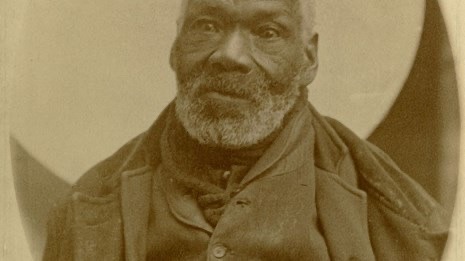
Private Rev. James Robinson (March 21, 1753 – March 27, 1868) was born on the Eastern Shore of Maryland into bondage. His master was Francis De Shields. He served under General Gilbert du Motier, Marquis de Lafayette, and would become a significant African American soldier in the Revolutionary War.
His master Francis De Shields had him enlist at age 24 and fight in a Virginia Light Infantry Regiment with the promise that he could earn his freedom. He fought in the Battle of Brandywine, White Haven, Roanoke River, Ragged Point, Dorset County River, Vienna Ferry, and Cambridge. On October 14, 1781, he led the charge of 400 American troops up British Redoubt #10 at the Siege of Yorktown and he attacked and defeated three British soldiers at once and the Redoubt was captured. The General was so impressed with his actions that he awarded him a Gold Medal of Valor. This made him the highest decorated African American veteran of the Revolutionary War. He was one of between 5,000 and 10,000 African Americans who served in the Revolutionary War on the American side.
De Shields reneged on his promise to free him and sold him in New Orleans. His new master Calvin Smith, was cruel and unforgiving and had him serve in the War of 1812. In 1813 General Andrew Jackson arrived to gather forces to repel the British during what would become the Battle of New Orleans. One of his fingers was shot off in battle. He was struck by a saber in the head, leaving a scar he would carry his whole life. General Andrew Jackson announced that the enslaved who had fought would not be freed after all.
He obtained his freedom in the 1830s and became an ordained minister. He married Curtilda and they had two sons, Alexander and Wesley Sr. Wesley who served in the American Civil War in the 102nd US Colored Infantry Regiment. He wrote a book James Roberts about his life under a variation of his name. He was the last living African American Veteran of the Revolutionary War at the time and the oldest person buried in Elmwood Cemetery. #africanhistory365 #africanexcellence
0 notes
Note
Vick Hope graduated from Cambridge, not Oxford, and she appears to be the love of his life. Just for transparency(somewhat), I am ex Tayvin so I sometimes peek at what’s going on with him, and also with Aarika. I thought Tayvin was such a fun ship, and we tracked all the time. Calvin helped us with his snapping. He reminds me of Travis because they both said things that were cringe in the past. I felt sorry for him because of stupid Swifties and Kaylors trolling him. I couldn’t stand Tom, thought Harry was a Ho, and loved Joe. Travis is the reason I left the fandom(he’s gross). I am not that active on Tumblr anymore(can’t stand the Taylor cupcakes), but have read your blog over the years, when you were around. You talk about other people than TS, so it’s ok, even if you are a TS blog. Right now I follow Alwyn blogs on Insta, plus other non celebrity interests, but don’t post. No, we don’t want Joe with Taylor. You seem to doing well, better than in the past, and I hope I didn’t aggravate you.
yes queen I love you and have done so for years! ❤️
1 note
·
View note
Text
Lewis and the Firebrands
The world, as it is now becoming and has partly become, is simply too much for people of the old square-rigged type like you and me.
I don’t understand its economics, or its politics, or any dam’ thing about it. Even its theology-for that is a most distressing discovery I have been making these last two terms as I have been getting to know more and more of the Christian element in Oxford.
Did you fondly believe - I did - that where you got among Christians, there, at least, you would escape (as behind a wall from a keen wind) from the horrible ferocity and grimness of modern thought? Not a bit of it.
I blundered into it all, imagining that I was the upholder of the old, stern doctrines against modern quasi-Christian slush: only to find that my ‘sternness’ was their ‘slush’. They’ve all been reading a dreadful man called Karl Barth, who seems the right opposite number to Karl Marx.
‘Under judgement’ is their great expression. They all talk like Covenanters or Old Testament prophets. They don’t think human reason or human conscience of any value at all: they maintain, as stoutly as Calvin, that there’s no reason why God’s dealings should appear just (let alone, merciful) to us: and they maintain the doctrine that all our righteousness is filthy rags with a fierceness and sincerity which is like a blow in the face.
Sometimes the results are refreshing: as when Canon Raven (whom you and Dyson and I sat under at Ely) is sharply told in a review in Theology that ‘it is high time persons of this sort learned that the enjoyment of a chair of theology at Cambridge does not carry with it a right to criticise the Word of God' - that’s the kind of rap on the knuckles which has not been delivered for a hundred years!
But the total effect is withering.
Of two things I am now persuaded. (1) That a real red-hot Christian revival, with iron dogma, stern discipline, and ruthless asceticism, is very much more possible than I had supposed.
(2) That if it comes, people like us will not find it nearly so agreeable as we had expected. ‘Why have they desired the Day of the Lord? It is darkness not light.'
I have no doubt the young gentlemen are substantially right: this is the goods. We ought to have expected that if the real thing came it would make one sit up (you remember Chesterton ‘Never invoke gods unless you really want them to appear. It annoys them very much’).
-C.S. Lewis
February 1940
0 notes